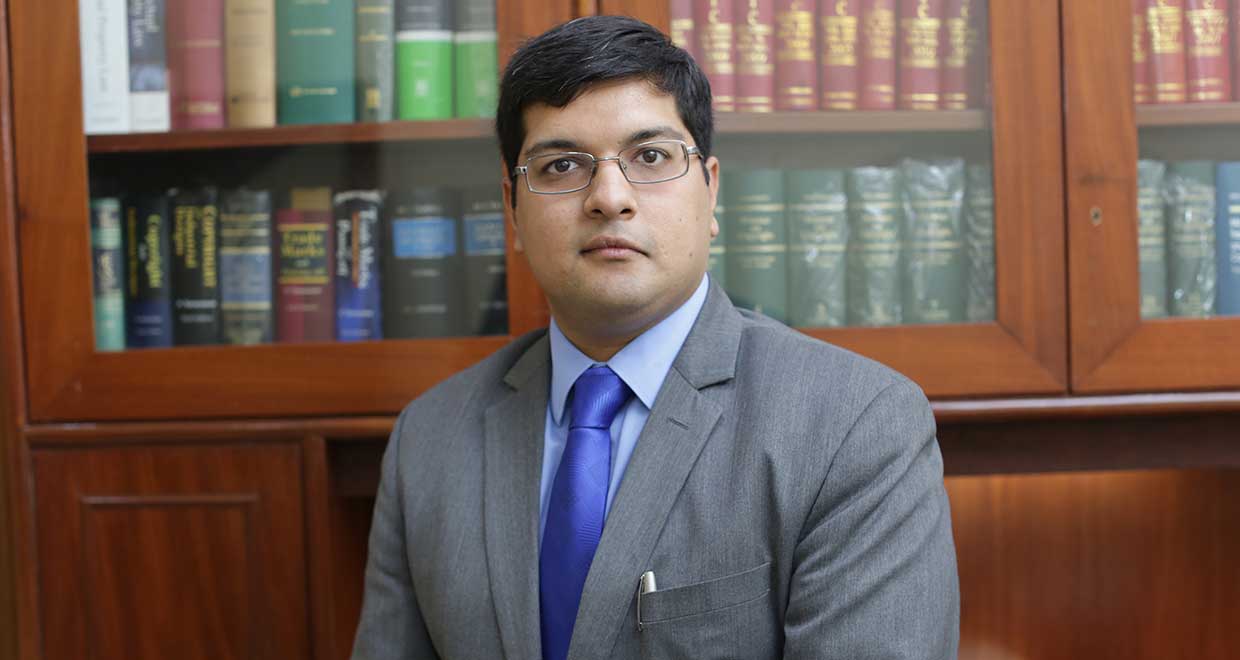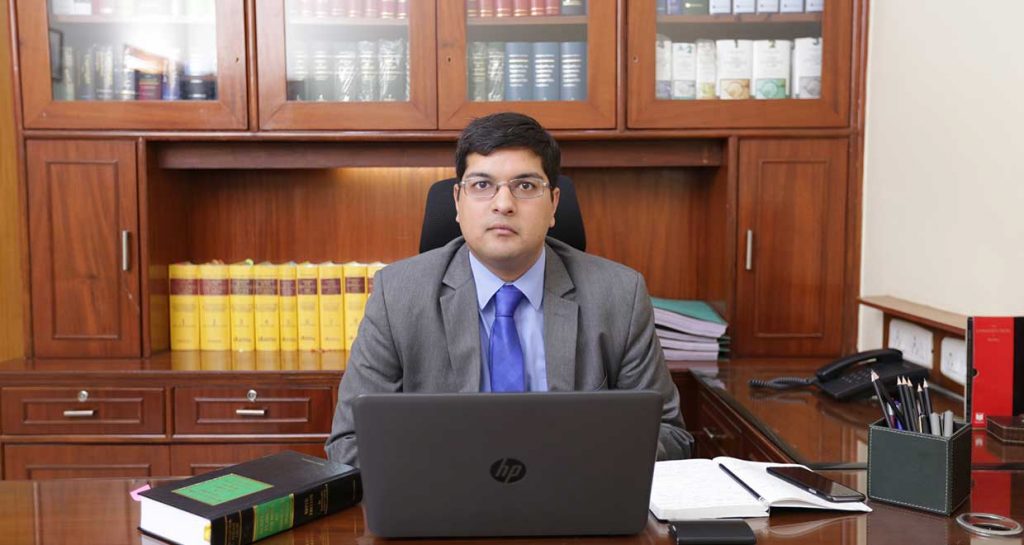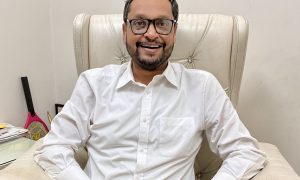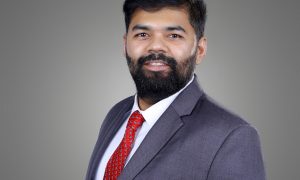Having graduated in 2008 from Symbiosis Law School, Pune, Bharadwaj began his career at K&S Partners, a tier 1 boutique intellectual property law firm. Having spent five years there, he joined Saikrishna & Associates, a tier 1 intellectual property & commercial law firm, in November, 2013. Thereafter, Bharadwaj joined Sim and San, Attorneys At Law. Bharadwaj has over eight years of solid and in-depth work experience and knowledge in the fields of Intellectual Property and Commercial law.
In this interview he speaks to us about:
- His experience in IP Law
- The transition from working for tier 1 law firms to working with a smaller set-up
- His foray into academia
How would you like to introduce yourself to our readers?
I am a first generation lawyer, with my father being a management guru and my mother who, amongst other activities, is a singer. I have a younger brother, who is an aspiring musician and a music producer. In that sense, it is a fantastic and exciting feeling to know that, where I stand today, is on account of my own efforts and hard-work. That being said, I have been extremely fortunate to have had and continue to have some great mentors in my professional career who have played a vital role in my professional career path. My career has also immensely benefited from the fact that my wife, Raddhika Singh, is also a lawyer.
Could you tell us why you chose B.BA. over a B.A. degree?
When I joined law school, I had the option of choosing either the B.BA. or BA law degree course. B.BA. was the preferred option for me, as the business subjects (forming part of the course) interested me more. That being said, what I have learnt these past more than eight years is that the specificities of your degree do not matter eventually. Just because someone does the B.A. .LLB course, it does not mean that they are incapable of dealing with commercial/business issues. The same is true inversely. Ultimately, it comes down to the individual.
By the time I hit high school, I was still unsure of what I wanted to pursue in college. My paternal grandfather, who belonged to the first IAS batch of administrators, played a huge role in directing me towards law. He believed that I had the requisite skills to become a good lawyer. I am extremely thankful for the passion and drive he showed towards my career.
What are the kinds of activities that you took part in during your legal education?
In college, I made a concerted effort to participate in moot courts. Moot courts are extremely important for a law student. Some of the skills that are acquired through mooting have immense value to a law student, once they become advocates. These skills include (i) understanding the facts at hand and identifying the key issues involved (ii) conducting research and building up of a case (iii) drafting a memorial (iv) arguing the case (v) court manners (vi) identifying and addressing rebuttal arguments etc. All of the above find an application when handling a real case. The value of participating in moot courts is, therefore, essential and crucial for the development of a good lawyer.
Appearing both as a speaker and a researcher in several State and National level moot court competitions, there was also scope to mentor mooting teams in my last couple of years in college. A lot of what I learnt through mooting helped me in my initial years as a green-horn in the profession.
Apart from mooting, I also helped organize seminars, guest lectures and symposiums for college. If anything, these enabled me to interact closely with some of India’s finest legal minds. I was able to pick their brains and gain valuable insight into the profession, as well as get some solid career advice. I certainly feel that, as a law student, it is also important to interact with senior and respected members of the profession, as their practical inputs and advice certainly help in making career choices for law students.
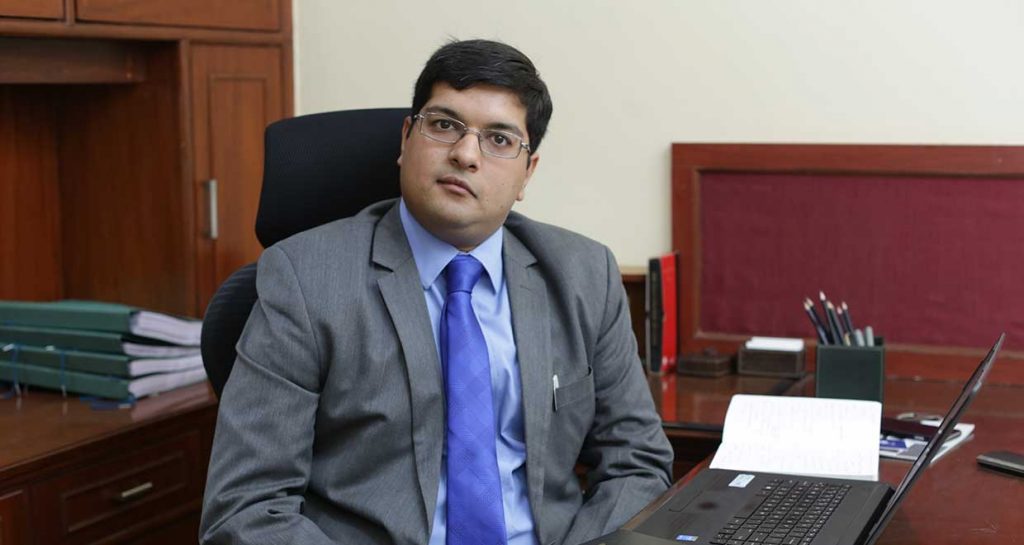
How important are internships for an aspiring lawyer?
Being a first generation lawyer, it immediately occurred to me, during my first semester in college, that internships would be crucial to me securing a job. In fact, it is through my internships that I was lucky enough to receive a pre-placement offer from K&S Partners (one of India’s leading boutique IP Firms), before college placement madness began for my batch.
As a law student, and I still hold this opinion today, it is important to experience different kinds of internships. During my five years at law school, I managed to intern with single practitioners, a designated Senior Counsel, general and boutique law firms, a company, and with an international NGO in South Africa. Doing such a wide array of internships certainly helped me zero in on where I wanted to work and, most importantly, the kind of work I wanted to do. There are just so many avenues of law that can be explored. My internships in the initial couple of years gave me exposure to different types of law. Around my third year, I got interested in IP law and, thereafter, my internships focussed on firms that practiced IP law. Through such focussed internships, I was able to get a PPO.
It is also important to do internships as often as possible. In my time, we did not have the luxury of doing running internships. Nor did we have a set-up whereby minimal subjects were taught in the final year, thereby providing an opportunity to just intern in the final year, with the objective of landing a PPO. In fact, today, my office has a couple of such final year interns; who have only one subject to study. Such opportunities were not there when I was in college.
Internships become that much more important when one is a first generation lawyer. Building up contacts through internships is important both from getting a job, as well as from a networking perspective. You never know when a contact cultivated through an internship becomes important at a later date. It goes without saying that the approach of work, the work itself and conduct are extremely crucial during an internship. Just because a law student secures a good internship, does not automatically mean that a PPO is possible. The onus is completely on the law student to make the best of their internship. Going the extra mile on assigned work and deliverables does have a make a big difference during an internship. Apart from the work, the conduct and mannerisms of the law student during internships is also important. Apart from showcasing professional ability, I equally feel that showcasing your personality (as an open and approachable person as opposed to being arrogant or cocky) is also important. I guess to sum it up, a law student would want to be remembered in a favourable light after the conclusion of the internship. From my personal experience, I still remember, and am in touch with, some of the interns who really made a mark when interning with me (or my firm).
How important is it to cultivate the skill of academic writing for young lawyers and students?
(Bharadwaj has had his works published in a wide array of IPR journals.)
It is really important for a lawyer to write articles/papers. Yes, with demanding schedules, it is easy to ignore this aspect. Writing articles and getting them published have great professional and personal advantages. It also gives immense personal satisfaction! Some benefits that accrue from writing papers include:
- It brings fantastic exposure to the author. Writing in the right publication, having quality and wide readership, provides a brilliant platform for the author to show himself/ herself. The style of writing, manner, background research, thought process, analytical skills etc., all get showcased.
- It provides an opportunity for the author to create a niche and become an industry expert. Who knows, potential clients can emerge from reading articles and publications.
- It pushes the author to bring themselves up to speed with the law and developments, both in India and worldwide.
- It also helps develop drafting and analytical skills.
- Adds immense character and value-add to the author’s profile.
The list of advantages can be endless. Finding a balance between work, personal life and writing is the key. The balance has to be found. If it means staying up a little longer or writing during a holiday, then I suggest you do it. Personally, I try and plan my schedule in such a way that I carve out time, either on a Saturday or Sunday, to try and write. Sometimes, I am able to write an entire article without a break and other times, other circumstances, force me to write in stages. No matter what the circumstances, I do force myself to write. In a way, making a commitment to a publication forces me to honour the same, thereby giving me no option but to write.
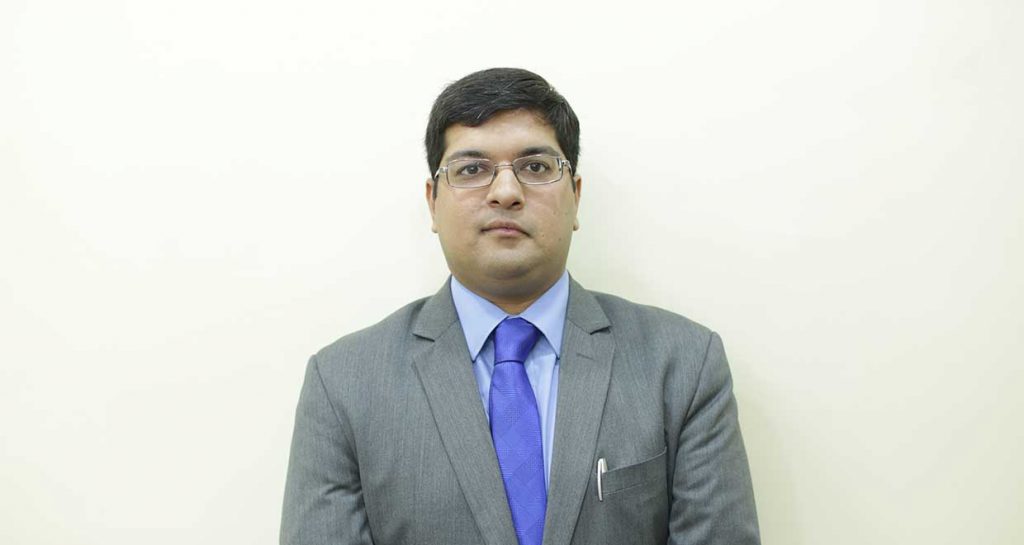
Please share with us your experience at K&S Partners, your first job.
Working at K&S Partners is something that I will always cherish. I spent my first five years in the profession working with K&S Partners. I was lucky enough to intern twice at K&S Partners, before getting my PPO from them. Hence, when I started working, I knew most people there- lawyers and support staff. That helped.
I can honestly say today that working at K&S Partners played a HUGE part in shaping me as a lawyer and professional. The first office that a lawyer works with will, and should, always hold a special place. Some of my mentors (who continue to mentor me today) are with K&S Partners. In that sense, I consider myself extremely fortunate. Of course, it goes without saying that this is a two way street. I know the amount of effort and application I had to put in at K&S Partners, to ensure that I benefited from anything that was offered to me by the firm.
As a fresher, I had to put in extra effort to bring myself up to speed with the law and practice. What I learnt, very quickly, was that the law you learn in a classroom is completely different from the law that is practiced. Even after work, I would spend time reading judgments and commentaries, so that the following day, I could add value. For me (and indeed for every aspiring lawyer), along with doing the grunt work, it is equally important to contribute from a strategy perspective. You don’t want to get tagged as a lawyer who can only execute. It is also important to be known as someone who contributes at the ideation and strategy phase as well. K&S Partners allowed me to do that. Of course, I had to ensure that I put myself in such a position where I was able to do that.
A lot of what I learnt and imbibed at K&S Partners still stay with me today. Working for five years at a tier-1 firm provided me with an excellent launch pad to make a name for myself in this profession. I will always be grateful for the time I spent with K&S Partners. Apart from having some excellent colleagues, I made some lovely friends, with whom I remain in contact till date.
What motivated you to choose IPR as your area of expertise?
Sometime in my third year of law school, I realized that I had developed an interest in IP law. Till that time, I had done some work, through my internships, on other areas of law. I can’t exactly recall what motivated me to pursue IP. I do recall that working with brand names that form an everyday aspect of my life (from my toothbrush brand to the clothes I wore to the pen I wrote with etc.), did influence me. Interning with K&S Partners, a boutique IP firm, influenced me heavily. The work I did as an intern (twice) around brand names, IP in Bollywood, Image rights etc., really got me excited about IP. I have never looked back since.
Luckily, through my professional career, I have been able to work with different IPs and work on different aspects of IP. In my experience, what a lot of people don’t realize; is how important IP is and can be. It is really looked upon as just another asset and not as a vital asset that can make or break business. A good IP protection, enforcement and exploitation strategy can mean the very existence (including market domination) or destruction of an entity (be it an individual or corporate house). Especially in today’s start-up environment, big ticket funding, series funding etc. can can be rendered irrelevant, and in fact wasteful, if IP is not protected or secured. Working in such an atmosphere is very exciting for me.
In fact, for over eight years, I made a conscious effort to stay away from patents on the ground that I did not have a science background. I knew the basics of patent law and the importance of securing and enforcing patents, but I never really touched this aspect of IP law. Now, working with Sim and San, I am actually engaged in a couple of precedent setting patent matters, which includes the Standard Essential Patent litigations going on in the mobile handset sphere. Suddenly, after eight years of working with trade marks, copyrights, designs and geographical indications, I have discovered that patent law also interests me, which only adds to my excitement around IP laws in India.
Could you share your experience representing industry leaders in the field of technology?
The experience has been both challenging and exciting. Technology and IP laws are connected and overlap quite a bit. It is, therefore, a great chance to learn about new technology while applying IP law to the same. It is also quite exciting to know that some of the mobile applications and technology devices that one uses day in and day out, are being back-ended by your team from a legal perspective.
It is also very nice interacting with tech leaders. One of the biggest advantages with working with technology and industry leaders is that you get to learn a lot of new things about IP and technology law and the application of existing law to new fields of technology. Since the technology leaders I was fortunate enough to work with were always looking to push boundaries, applying existing law was extremely exciting and challenging. The other aspect which I really liked was the fact that the technology industry leaders I worked with, had a fresh and dynamic approach to their work and product. Such an approach made it extremely fun working with them.
How has your experience as visiting faculty at Symbiosis, Noida, been?
I quite enjoy the experience of being a visiting faculty. After a few years in practice, I was actually looking for a way in which I could give back to my law school. So when I heard that Symbiosis Law School was opening a campus in Noida, and that Dr. C.J. Rawandale was going to be the Director, I got in touch with Rawandale Sir (who was one of the Professors I interacted with a lot during my college days). Sir was immediately keen that I start taking IP classes for the students. Eventually, it also extended to me taking a few classes on Information Technology law as well.
Being on the other side of the fence, has been an interesting ride. I found it quite amusing that I was, while teaching, asking students to keep quiet, when a few years back I was also probably doing the same very thing. That aside, I learnt, after taking a couple of classes, that teaching is a very challenging profession. It requires a lot of dedication and focus. Teaching at Symbiosis, Noida made me read a lot more because I wanted to keep myself updated on the latest developments in IP law. This, of course, helped me immensely at work as well.
Also, I learnt being patient and became a better listener, while taking classes. This has also helped me greatly at work, especially when dealing with a difficult client or where I was required to understand client’s requirements before offering advice. That way, teaching has helped me immensely, both as a professional and as a person.
The other aspect of teaching that I have really benefitted from, is that I got to know some of the students really well, through interactions inside and outside class. This has helped me get good junior associates and interns whenever I have had such a requirement. Plus, some of these students have also become good friends of mine.
What motivated you to join an emerging Firm, Sim and San, after working in two tier-1 IP firms?
I just wanted a new and different challenge. Working with K&S Partners and Saikrishna & Associates, two tier-1 IP Firms, provided me with a fantastic foundation in most aspects of IP law. I consider myself extremely fortunate to have worked with these two firms and, that too, with some fantastic lawyers. But I felt that my professional career needed something new. I wanted to feel challenged once again in my professional career and not get comfortable in what I was doing.
After working at these two offices, I was sure that I did not want to work, at this moment, with a large set-up. I wanted to take a step-back and join a smaller emerging office, where the scope of work is wider and, therefore, a greater opportunity for me to grow as a professional. A very dear friend of mine connected me with Sim and San, Attorneys at Law. He told me of some of the work that Sim and San are doing, which included being involved in some of India’s biggest patent, GI and trade mark matters. I immediately felt that this could be a good match. Thereafter, I met Mohit and Sidhant Goel, Partners at the firm, and we immediately connected. It was very easy to say yes to the offer.
There is, of course, a big difference in working with a large firm and a smaller firm. The dynamics, work environment and set-up are different, which I found really nice. It felt really nice to work with a small, motivated and young team, who all think on the same wave length and want the same thing as well. It also felt nice to enter an environment where, after a long time, I felt the focus was only on work and not on other stuff. Somewhere, I felt that I needed to make a big change in my professional life, so that my career could advance. I can say that, three months into my new adventure, I am very happy to have taken a leap of faith.
What are some of the benefits and advantages with working with an emerging firm?
Today, there are so many emerging firms who claim to be experts in IP law. Choosing a good firm, therefore, is very important. The biggest advantage with a smaller firm is that it provides a tremendous space to express oneself as a professional, thereby offering a bigger opportunity to make a name and reputation. I personally feel that in a smaller firm, there is a greater scope of getting yourself known as a good lawyer.
In a smaller firm, there is a greater chance of doing everything, as opposed to working in a larger firm that has clear and distinct verticals. I find that as a young lawyer or for someone looking for something fresh (as was my case), working in an environment where everyone does everything offers a greater challenge and scope for learning. I do feel a great opportunity exists to become a good and effective well-rounded lawyer.
Also, with a smaller firm, the management is usually extremely motivated to establish a firm foothold in the market and tend to look at problem from a different angle. Plus, there is a determined effort to be a little different from established firms. This is something that personally appeals to me. Put simply, there is a greater opportunity to become a big fish in a small pond, as opposed to a small fish in a big pond.
What is the experience of being a member of the Emerging Issues Committee of the International Trademark Association (INTA)?
I am currently a member of the INTA’s Committee on Emerging Issues for the term 2016-2017. Within this Committee, there are various Sub-Committees. The Sub-Committee that I am involved with is looking contributory infringement of intermediaries from a trade mark law perspective.
The experience in working in such a Committee (including the Sub-Committee) is really nice. I get the opportunity to interact, in depth, with fellow members, who represent firms and companies from around the world. For example, my current Sub-Committee consists of lawyers (in-house and practising) from all five continents. It is a great way to know and understand the development of law (and indeed precedents) that deal with the focus area of the Sub-Committee. I also get the opportunity to explain to my fellow members the state of law in India and the emerging trends, precedents and developments.
In terms of being a member with organizations like INTA, AIPPI etc., there are quite a few benefits. It obviously affords a fantastic platform to network and build contacts in countries around the world. It also helps in developing mutually beneficial professional relationships between firms. Also, the annual meetings (and other conferences) of these organizations provides a great setting to meet existing clients, cultivate new clients and, also, to meet and catch up with professionals and friends from around the world. Plus, there is a lot of knowledge sharing that happens, which is very useful as a professional.
What are your interests outside of law?
Outside of my work, I am a fanatical supporter of Manchester United. I have been so since about 1996. Subject to my work requirements, I try my level best to catch all their games. There have been times where I have compromised on my sleep to try and catch a later kick-off and be at work early next day!
I also play the sport of Ultimate Frisbee, an American sport, which is one of the fastest growing sports in India. I represent the Delhi Ultimate team. As part of my love for this sport, I am also one of the legal advisors to the Ultimate Players Association of India.
I also enjoy listening to music, especially blues and jazz, and love travelling.
Finally, what parting advice would you give to our readers considering most of them are young lawyers or law students?
As parting advice, I would say that becoming a good lawyer is like a test match and not a T20. Given that there are so many avenues of law and varied professional and employment opportunities, choosing the right one is vital. Sometimes, identifying your core/ niche area takes time. The right way, in my opinion, is to be guided by the quality of work and not the salary. It is very easy for a law student or a young lawyer to get swayed by the pay package being thrown their way. Sometimes, the work offered (with the large pay package) works out, sometimes it doesn’t. What should matter is the work and work only. Money will follow if you are enjoying the work.

